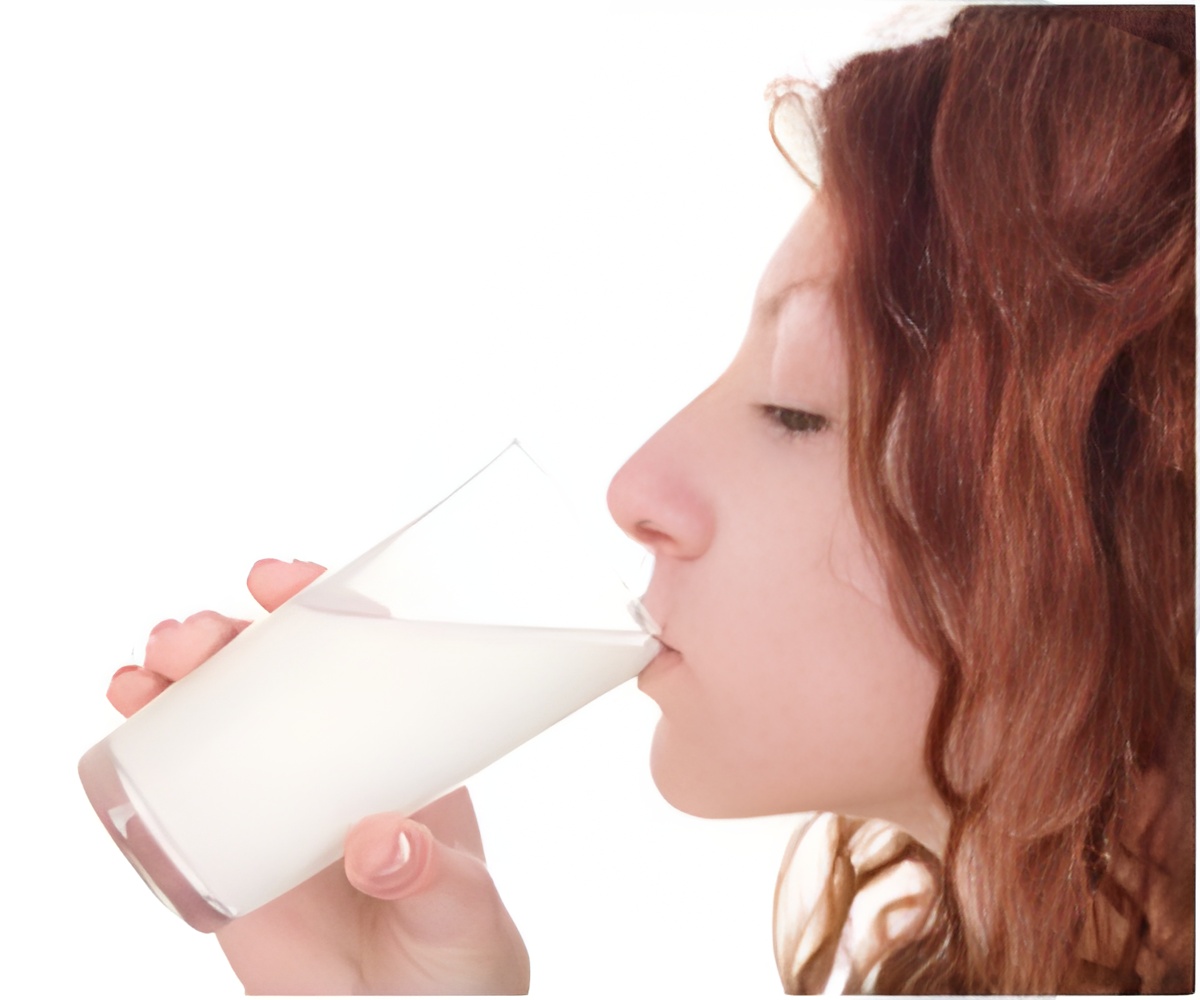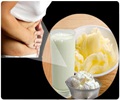
Because older people frequently have trouble digesting milk products, the researchers developed a low-lactose formula. American ginseng was added, and then the milk was sterilized by ultra-high temperature processing (UHT), which prolongs shelf life. Analysis found that sufficient levels of ginseng remained in the milk after treatment to improve cognitive function as reported in the literature.
To reduce the bitter taste of American ginseng, the investigators developed samples with vanilla extract and sucralose, a zero-calorie artificial sweetener. In a preliminary study, 10 tasters with a good ability to discriminate between flavors compared low lactose UHT milk without any additives (the control) to low lactose milk with ginseng extract, vanilla aroma, and sucralose added before UHT treatment. They developed a list of 10 attributes that described the sample: color, sweet odor, milk flavor, vanilla flavor, metallic/root flavor, sweetness, bitterness, aftertaste, astringency, and viscosity. They then rated the intensity of each attribute for five samples; the control; the control with ginseng extract, vanilla aroma, and sucralose added; the control with ginseng extract added; the control with vanilla and ginseng extract; and the low lactose milk with ginseng extract; vanilla aroma; and sucralose added before UHT treatment.
In a second study, 100 participants were asked, on a scale of one to five, how willing they would be to consume a "highly digestible semi-skimmed milk," and a "highly digestible semi-skimmed milk enriched with ginseng extract that would improve cognitive function." Then, they tasted and rated, on a scale of one to nine, the overall acceptability of the control milk and the low lactose milk with ginseng extract, vanilla aroma, and sucralose added before UHT treatment.
Both the presence of ginseng and the thermal treatment affected some sensory properties of the milk. The addition of ginseng significantly increased the perceived light brown color in the flavored and unflavored samples, and was highest in the reduced-lactose milk with ingredients added before the UHT treatment. The sweet odor was more intense in flavored samples, but decreased slightly in the samples of milk with ingredients added before UHT treatment. Bitterness was clearly perceived in the samples containing ginseng additives, but was lower in flavored samples, indicating that the vanilla aroma and sucralose masked, to some extent, the bitter taste caused by ginseng extract.
Consumer responses varied greatly, depending on interest in the product. 78% indicated that they would be likely to consume the highly digestible milk, and after tasting the product, 87% of them indicated they would buy the sample. 47% indicated they were not interested in milk enriched with ginseng, and after tasting, they gave it a low acceptability rating. However, for the 32% of consumers who did express an interest in the product, 75% declared they would buy it.
Advertisement
Commenting on the studies, Susan Duncan, PhD, professor, Department of Food Science & Technology, Virginia Tech, noted, "With the combination of intrinsic health benefits in milk and these additional ingredients, milk becomes an easy way to deliver valuable functional ingredients and the functional benefits of milk components. Diversifying the product line for milk and dairy products has a number of benefits, including market and consumer visibility and perception."
Advertisement














